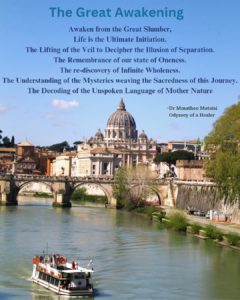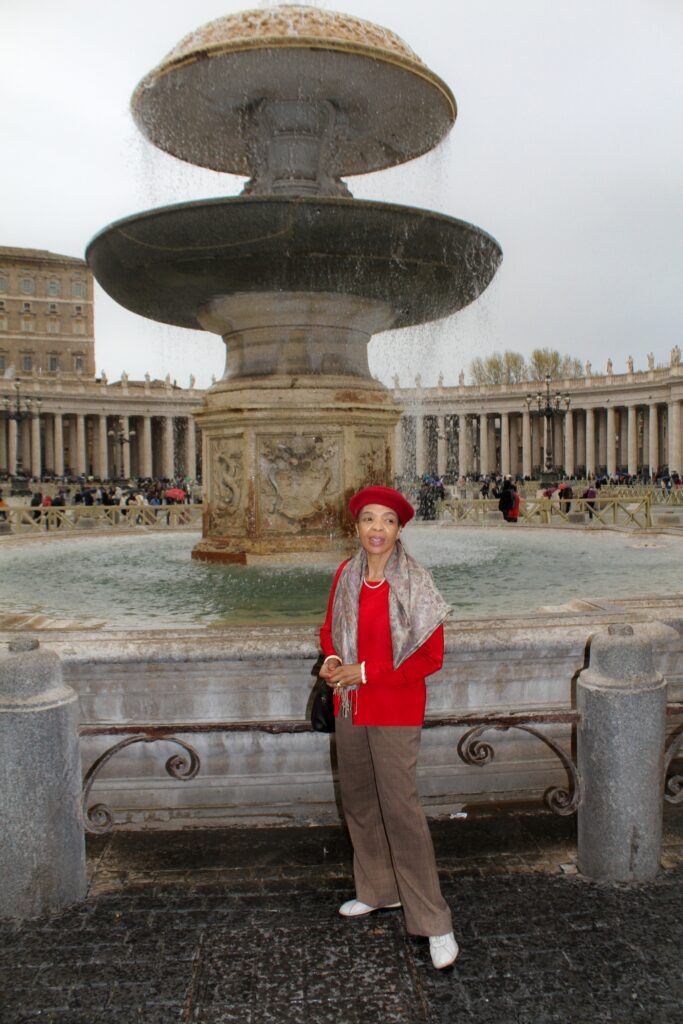The “Dark Night of the Soul” is a concept that originates from the writings of the Spanish mystic and poet St. John of the Cross, particularly in his work “Dark Night of the Soul” (Spanish: La Noche Oscura del Alma), which is a treatise on the mystical journey toward union with the divine.[1] In this context, the Dark Night refers to a spiritual crisis or a period of intense inner struggle and despair experienced by some individuals on their path towards spiritual awakening or enlightenment.
The Dark Night of the Soul is often described as a profound state of existential crisis, where the individual experiences feelings of emptiness, disillusionment, and a sense of being disconnected from God or the divine. It is seen as a necessary stage in the process of spiritual transformation, where the ego is broken down and the individual confronts their deepest fears, doubts, and attachments.
In a nutshell, this is any period of time in a person’s life when chaos and confusion continue without a break. Life will often present challenge after challenge, one heartache after another, or ongoing devastating experiences without any relief in sight. These periods force us to reevaluate what we think, how we feel, what is really important, which values give us strength, and what to let go of that no longer serves us. These Dark Nights create major reality adjustments that force us to reevaluate our priorities.
The process of awakening can be triggered by various factors, such as spiritual practices (e.g., meditation, yoga, prayer), intense life experiences (e.g., trauma, loss, profound love), or encounters with spiritual teachers or teachings. It is often characterized by a heightened sense of awareness, compassion, and authenticity, as well as a shift in values and priorities. The journey of awakening is highly individual and can unfold in different ways for each person. While some may experience sudden and dramatic shifts in consciousness, others may undergo a gradual and subtle transformation over time. Regardless of the path, awakening is seen as a deeply transformative and liberating experience, leading to greater inner freedom, peace, and fulfilment.

Kindly allow me to relate this experience of “The Dark Night of the Soul” based on my personal experience. A wake-up call accompanied by the lifting of the veil that arose from ignoring subtle signs indicated the need to yield to changes needed in my life. A rude awakening that triggered a necessity to radically shift my approach and pay close attention to detail as I navigated through life’s challenges. The process itself is deeply interwoven, it affected the physical, emotional, psychological, and spiritual aspects of my being, making it difficult to separate these elements distinctly.
The brewing of this internal chaos led me to despair, which ultimately prompted me to embrace change. It awoken within me the courage to let go of cowardice, accept challenges, and take on responsibility. Upon reaching its climax, I was endowed with inner strength and endurance, as well as the willingness to confront the shadow aspects of self and embrace accountability.

Both the Dark Night of the Soul and the process of awakening are integral parts of the spiritual journey, representing the challenges and the rewards of seeking deeper meaning and purpose in life. They remind us that true growth and transformation often emerge from the darkest depths of our being, leading us towards greater wholeness, integration, and spiritual realization.
Lessons that emerge from navigating the Dark Night of the Soul
- Embracing Darkness: The Dark Night invites individuals to confront and integrate their shadow selves—the aspects of their personality that they may have repressed or denied. By acknowledging and accepting these darker aspects, individuals can achieve greater wholeness and authenticity.
- Surrender and Acceptance: The Dark Night teaches the importance of surrendering control and relinquishing attachment to outcomes. By surrendering to the process and accepting the reality of their experience, individuals can find inner peace and resilience in the face of adversity.
- Seeking Meaning: Amidst the darkness, individuals are often compelled to search for deeper meaning and purpose in their lives. The Dark Night encourages introspection and soul-searching, leading individuals to reevaluate their values, beliefs, and priorities.
- Spiritual Awakening: The Dark Night is often a prelude to spiritual awakening or enlightenment. By stripping away illusions and ego-driven desires, individuals may experience a profound spiritual awakening and a deeper connection to the divine or universal consciousness.
- Transformation and Growth: While the Dark Night can be excruciatingly painful, it is also a catalyst for profound personal growth and transformation. By confronting their inner demons and undergoing a process of purification, individuals emerge from the darkness with greater wisdom, strength, and compassion.
- Compassion and Empathy: Having experienced their own suffering, individuals who have navigated the Dark Night often develop a deeper sense of empathy and compassion for others who are struggling. This heightened empathy enables them to offer support, understanding, and guidance to those in need.
- Gratitude and Resilience: Emerging from the Dark Night, individuals often develop a greater appreciation for life’s blessings and a newfound resilience to face future challenges. Having endured profound darkness, they cultivate gratitude for the light and beauty that surrounds them.
Overall, the Dark Night of the Soul is a transformative journey that ultimately leads to greater self-awareness, spiritual depth, and inner peace. While the experience may be agonizing, the lessons learned, and the growth achieved can be invaluable in the journey toward wholeness and enlightenment.
In this journey it is important to momentarily pause immerse oneself in the bountiful ocean of Mother Nature and enjoy her beauty and offerings. Always remembering that Mother Nature has the sweetest fruit in the thorniest branches. The awakening to Universal Truth that though perceiving Self as an “individual”, the reality is we belong to the Whole. Neither are we separated from the Universal Self; we are microcosm of the Macrocosm. This notion transcends the nucleus family, community, tribe and nation that we often fixated on.

[1] John of the Cross, St. (2003). Dark Night of the Soul and The Ascent of Mount Carmel. Translated by E. Allison Peers. Dover Publications.

